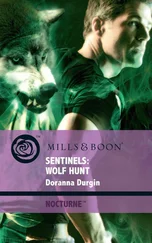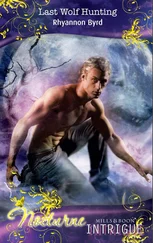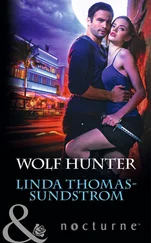He shouted to Relmyer: ‘He knows this forest: it’s he who’s masterminding this chase, not us!’
Relmyer was not listening to him. He was noticing something else. The militiaman’s horse was not up to the tactics of its rider, and was starting to show signs of fatigue. His own, on the other hand, neck stretched out and nostrils quivering, was eroding the distance that separated them. Margont was struggling not to be left behind; he was not experienced in chasing people on horseback. The branches whipped his face, confusing him, while the bushes murdered his legs and the flanks of his horse. Relmyer, paying no heed to these inconveniences, brandished his sabre, promise of devastating retribution.
The terrain was now gently sloping, which meant the horses speeded up. The fugitive manoeuvred his horse between
obstacles. He suddenly cut off to the right, abandoning the path to head into an entanglement of little bushes. The vegetation swallowed him up. It was an astonishing choice of route: on the path beyond there were fewer obstructions and so it was much faster. Relmyer continued on straight. Margont chose to follow the tracks of the runaway to close the trap. In spite of his advantages, the man was slowing down. Relmyer left the path in his turn and gained on him. He came level with him fifteen paces to his left. He was going to overtake him and cut off his route when the militiaman and his horse seemed to subside, as though the ground had given way beneath them. The slope he had been descending had suddenly become much steeper. Relmyer was now looking down on the fugitive, who descended still further. Relmyer’s horse reared. His frightened whinnying terrified the young hussar. Relmyer, clutching his reins, guessed rather than saw the danger. His mind could not interpret the chaos of images it was receiving: sky, trees, a rocky outcrop ... Relmyer lost his balance and crashed into the stony ground. That was what saved his life. When the legs of his horse landed, one of them encountered the void. The beast toppled head first and crashed to the ground fifteen feet below. It rolled over, kicking up dead pine needles, and finished up against a tree trunk, its broken neck forming a right angle.
Margont’s attention had been deflected. When he looked again at the man he was pursuing, he barely had time to duck. The man had stopped and, turned towards Margont, was aiming his pistol at him. He had chosen his moment to perfection, proof that everything had gone as he had planned. Margont tugged frantically on his reins. The ball struck his horse in the neck and it went sprawling on its side. Shaken by his fall, Margont was drowning in pain. He freed his sword and tried to get up, but collapsed, caught by one of his stirrups. His mount, in agony, vainly tried to get to its feet, trapping Margont on the ground, his right foot crushed by the struggling animal. He tried to free himself while brandishing his sword. He was not going to be taken like this! He thrashed about like a wild thing. The militiaman looked at him, hesitating. Had he had another pistol he could have finished off the wriggling worm. He had taken hold of his sabre, but worried that the captain might wound him with his sword.
The Austrian decided not to linger. There might be others following him as well. The man spurred on his horse. A stone ricocheted off a tree trunk nearby. Standing on top of the rocky outcrop, Relmyer was throwing stones at him, hoping to knock him out. Stones! Pathetic ... Margont finally freed himself but a red-hot pain invaded his side. His wound had opened up.
CHAPTER 20
MARGONT was resting stretched out on some straw, his side in flames. Lefine came to sit down beside him. Margont watched him woozily. In preparation for being sewn up again he had been made to drink brandy and a concoction of laudanum, opium, cinnamon, cloves, wine and saffron. He was in a field hospital set up in a large farm in the village of Ebersdorf. All the wounded from Essling finished up here, either to recuperate or to die. The walls and the beams were impregnated with the odour of gangrene and blood. Even months later, the place would smell of death, haunted by those who had perished there.
Margont tapped his friend’s knee.
Thank you! Without you I’d still be there waiting for help.’
That would have been what you deserved! You galloped off like furies; several times I nearly lost you. Happily your route was not difficult to follow with all those broken branches and trampled bushes.’
‘We really almost got him.’
‘No, he almost got you! Croups of militia were circling the front line from north to south. They were crossing the Danube in boats or by ford or by the bridges that are still standing, to come and support the partisans who were already at our backs. Everyone knew that, but no! Relmyer and you, you’re always deaf to such things. A fine result, in truth!’
Seeing Margont’s grimaces of pain, Lefine took pity on him and held out his water bottle.
‘A drop of wine from the Wachau?’
Margont drank almost half of it.
‘That Austrian officer is definitely the murderer we’ve been looking for, Fernand. Not only did Relmyer recognise him, but also he deliberately fired at Relmyer before dashing off without giving any thought to the battle. He only mingled with the soldiers for one purpose: to kill Relmyer. And he would be dead had his horse not raised its head at that moment.’
‘The Wasp was saved by flies ... Yes, you’re right. But I don’t quite understand what was going on ...’
‘Neither do I. Let’s sum up what we know and try to see more clearly. First of all, I don’t think our man is a professional soldier. A professional fighter would have tried to finish me off He was not sure of succeeding even though I was injured on the ground and caught up in my stirrup. By the same token, when he did fire at me I was only a few feet away from him. He could have aimed at me but he preferred to make sure of his shot by wiping out my horse. He’s good with a rifle but not so good with a pistol.’
‘But over half the soldiers in the militia are originally from the regular army. They come directly from the army or, more often, they are veterans or have been invalided out.’
‘He’s too young to be a veteran, called back to service. As for being an invalid, right at this moment that applies to me more than to him ...’
‘Maybe he is a professional soldier but a non-combatant. An officer in charge of supplies, or a penpusher...’
Margont was feeling more and more groggy. The pain, like his
thoughts, was becoming less sharp, more diffuse. Sometimes the pain would come rushing back, making him clench his teeth and clarifying his reasoning, setting off glimmers of clear-sightedness in a fog of blurred thoughts.
‘No. If he had served in the regular army, he would have followed it at the end of 1805, when it was marching against us. But he was definitely in Vienna then because Albert Lietz and Ernst Runkel disappeared at that time, one of them in August, and the other in October. That means that there are several arguments pointing in one direction: our man is a civilian who enrolled in the militia. But he is an officer, either a lieutenant or a captain.’
‘Monarchies are keen on preserving the social hierarchy. Other officers of the Landwehr and the Volunteer force come from Viennese high society; they’re aristocrats, rich bourgeois, high-ranking functionaries ...’
‘We’re progressing! When one is lucky enough to be one of these “important people”, one can easily be tracked down. Perhaps our man is keen on hunting. That would explain his aptitude with a rifle and why he knows the forests round about here so perfectly. Did you interrogate the prisoners?’
They are as mute as carp. We captured fifty of them. Soldiers of the Landwehr of Lower Austria, and Viennese Volunteers.’
Читать дальше











